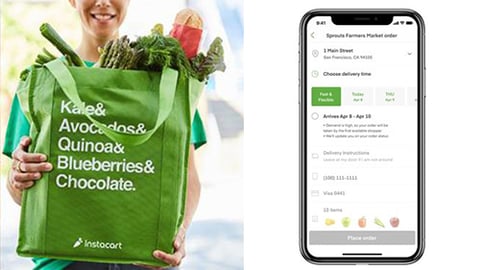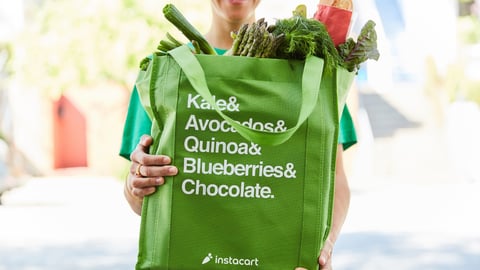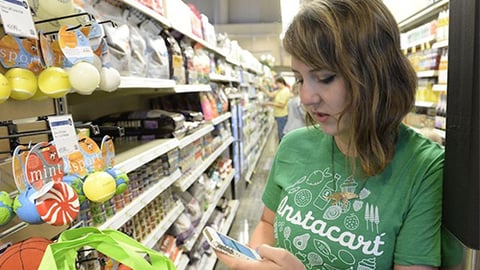Instacart Beefs Up Support Ranks
Instacart is growing its customer support ranks from a team of 1,200 to an army of 18,000 as the company grapples with overwhelming demand in the wake of COVID-19.
Instacart’s customer service division, called Care, had 1,200 team members in March; by May it will employ 18,000 members actively supporting customers, shoppers and partners, the company says.
"Over the course of the last few weeks, the customer demand for our service, and the sheer number of shoppers on our platform has surged in the wake of COVID-19. Our order volume was up more than 300% year-over-year last week and our shopper community has grown to more than 350,000 active shoppers, up from 200,000 just two weeks ago," said VP of Instacart Care Mark Killick. "As a result of this growth and influx of new customers across the marketplace, we’ve also seen an unprecedented spike in support volume across all of our Instacart Care facilities."
Instacart said that it has been working alongside a number of companies — such as Hilton, Hertz, and others spanning such industries as hospitality, travel and retail — to hire experienced support agents whose previous positions have been impacted by the economic downturn.
Due to the pandemic, Instacart has become an essential service for millions of people in the United States and Canada who are depending on the platform to safely, reliably and affordably get the groceries and household goods they need in a contactless manner.
"In my 38 years in the customer support industry, I’ve never seen anything quite like this," Killick said. "From a Care operations perspective, most natural disasters and emergencies are high stakes, sudden but localized. In contrast, COVID-19 is affecting every one of us over a sustained period of time, and, as a result, we’ve had to reimagine and rescale our Care operations overnight to best serve customers and shoppers across North America."
Killick said the company is temporarily moving all Care communications to chat to "allow us to work more quickly to address community concerns."
Over the past few weeks Instacart has also been working to launch new features that remove friction, including:
-
“Leave at My Door” delivery
-
Contactless alcohol delivery
-
Automatic cancellation for out-of-stock orders
-
In-app incident reporting for shoppers
-
In-app order issue review for shoppers
-
Ratings forgiveness for shoppers
-
Easy cancel batches for shoppers
-
Mobile Checkout for shoppers
This week, Instacart plans to roll out a new “Missing Order” feature that will allow customers to make an in-app report and automatic refund request for the rare instance that an order is delivered to the wrong address or doesn’t arrive.
Instacart has been the target of negative publicity lately as the company works to meet unprecedented consumer demand for grocery delivery (not to mention out-of-stocks and labor challenges).
On March 31, Instacart workers held a nationwide strike.
Last week, CNN reported that Instacart shoppers are being cheated out of tips by customers who modify the tip to zero after the order is delivered.
Meanwhile, USA Today reported that customers are complaining to Instacart on social media about stolen groceries.
Because many consumers associate their grocery delivery experiences with the retailer, and not with Instacart, the publicity could have implications for grocers that are Instacart partners.
To date, San Francisco-based Instacart has teamed up with more than 350 national, regional and local retailers, among them Albertsons, Aldi, Costco, Kroger, Loblaw, Publix, Sam’s Club, Sprouts, Walmart Canada and Wegmans, to deliver from more than 25,000 stores in 5,500-plus cities in North America. The company’s delivery service is available to more than 85% of U.S. households and 70% of Canadian homes.






